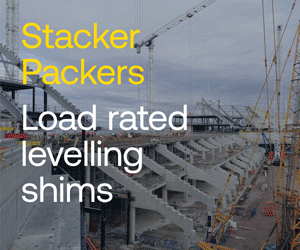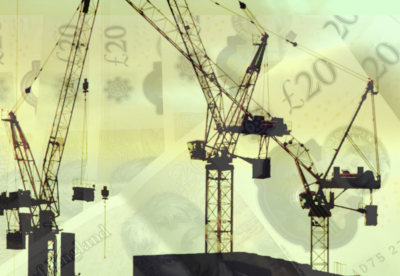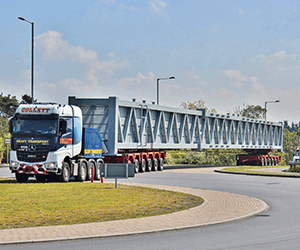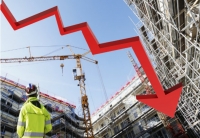But pressure is growing on clients and contractors to shut some sites down as worried workers highlight crowded conditions breaking social distancing rules putting operatives at risk.
Johnson said people will only be allowed to leave their homes for a handful of reasons including “travelling to and from work, but only where this is absolutely necessary and cannot be done from home.”
The Construction Leadership Council said it is “doing our utmost to keep construction sites operational wherever it is practical and safe to do so.”
The CLC has published a full list of site operating procedures here designed to protect site workers.
Chair Andy Mitchell said: “We are in exceptional circumstances, and are doing our utmost to keep construction sites operational wherever it is practical and safe to do so.
“Whilst the guidance from Public Health England may change in future, for the time being construction sites of any size that are operating during the Coronavirus Covid-19 pandemic need to ensure they are protecting their workforce and minimising the risk of spread of infection.
“To implement the Government’s social distancing recommendation the Construction Leadership Council has now published Site Operating Procedures.
“I would strongly recommend that these procedures are implemented by every operational construction site, with the aim of us having a standard approach across the industry that all firms and workers can adopt.
“It is also vital that the health and safety requirements of any construction activity must not be compromised at this time.
“If an activity cannot be undertaken safely due to a lack of suitably qualified personnel being available, or social distancing being implemented, it should not take place.
“We are aware that emergency services are also under great pressure and may not be in a position to respond as quickly as usual.”
But pictures of operatives crammed into canteens have painted an image of a two-tier industry.
Many contractors are doing the right thing and implementing social distancing rules on site to keep their jobs running and workers safe.
While others are carrying on regardless putting at risk the continued operation of all sites.
One contracting director told the Enquirer: “We are doing everything right in terms of keeping the operatives at a safe distance and its perfectly possible to do that with the right planning and leadership.
“It’s a bit like when you go out and about in everyday life. Most people respect the new rules but some don’t care.
“Our work cannot be done from home and we want to keep sites going and make them safe for everyone.
“We need the Government to realise that most contractors are trying to do this properly and we shouldn’t all be tarred with the same brush as those not doing things in the right way.
“We want to continue building and most of our operatives want to keep working as long as it’s safe.
“Industries like finance and manufacturing are keeping going and construction is just as vital to the future of the economy.”
Johnson’s announcement is causing huge confusion among construction companies.
One said: “We’re not sure whether the government classify construction as essential work at the moment.
“We need clarity quickly because clients are putting pressure on us to keep working while some operatives want to stop coming to site.”
The only additional advice from Government after Johnson’s speech came from Housing Secretary Robert Jenrick who stated on Twitter: “Advice for the housing, construction and building maintenance industries: If you can work from home, do so.
“If you are working on site, you can continue to do so. But follow Public Health England guidance on social distancing.“
Meanwhile, London Mayor Sadiq Khan joined Scottish First Minister Nicola Sturgeon in calling for construction sites to be shutdown.
He said: “I have expressed my concerns to the Prime Minister directly.
“In my view the only construction workers that should be working are those that we need for safety.
“I think this is a time to understand the scale of the challenge we are facing, these are extraordinary circumstances, of course it is important to recognise this is an economic and a social emergency, but more important it is a public health emergency.”












.gif)













































